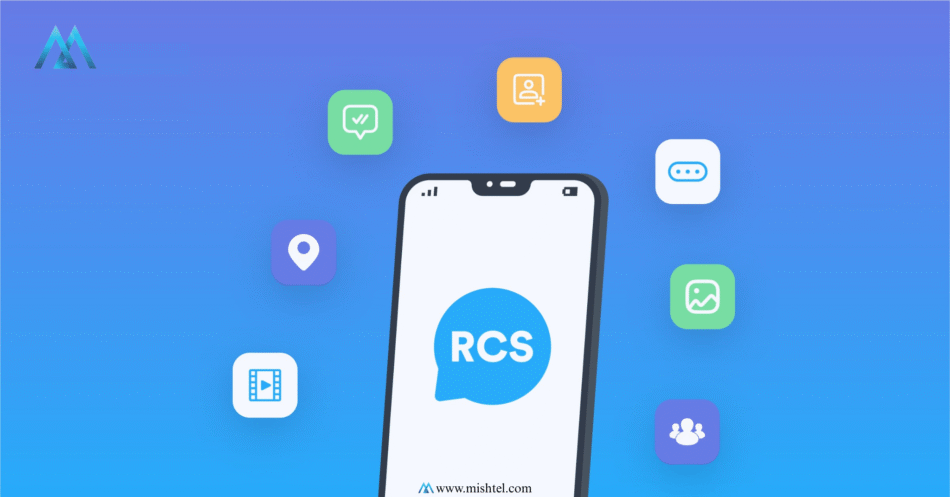In today’s mobile-first world, simply sending text messages is no longer enough. With consumers expecting richer experiences, brands must adapt — and that’s where Rich Communication Services (RCS) from Google steps in. Much more than a replacement for SMS, RCS offers a native, enhanced messaging standard that brings app-like features to your regular chat screen. In this post, we’ll explore what Google’s RCS Messaging means, why businesses should care, how to enable it, and what it means for the future of mobile communication.
What is Google RCS Messaging?
RCS stands for Rich Communication Services — a communication protocol developed to lift the limitations of traditional SMS and MMS.
When integrated into the Google Messages app, RCS brings richer features: high-resolution media sharing, read receipts, typing indicators, group chat enhancements, and more.
In essence, Google RCS Messaging turns your default messaging app into something more akin to WhatsApp or iMessage — but built into the phone’s native experience, and without requiring users to download heavy third-party apps.
Why Should Brands and Businesses Care?
For businesses, enabling RCS opens up new channels of engagement. Using the RCS Business Messaging (RBM) interface from Google, brands can deliver rich content directly to users: branded messages, buttons, carousels, read analytics, and even transactional flows (e.g., appointment reminders or payment confirmations).
Key benefits include:
- Improved Engagement: Messages with interactive elements (buttons, media) tend to get higher click-throughs and conversions.
- Branding & Trust: Because RCS messages can be verified (branded sender ID, richer visual style), they build stronger trust compared to generic SMS.
- Better Metrics: Read receipts and analytics allow you to measure not just delivery, but interaction.
- Omni-device Reach: Since RCS works over data/WiFi (and increasingly across Android/iOS), your reach expands beyond legacy SMS.
For a company in the cloud-telephony or Bulk SMS space (for example, your brand Mishtel), RCS offers a compelling next step in offering richer communication services — beyond simple SMS. It’s a natural value-added service: upgrade your clients from “just sending texts” to “rich, branded conversations”.
How to Enable RCS in Google Messages
For individual users, the setup is fairly straightforward:
- Open the Google Messages app.
- Tap your profile icon → Messages settings → RCS chats.
- Flip the switch to enable RCS. If it shows “Connected”, you’re good to go.
Keep in mind:
- The other party must also have RCS enabled (or a compatible network) — otherwise the message will fall back to SMS.
- It requires a data/WiFi connection.
- Regional/carrier support may vary.
For businesses using RCS Business Messaging, you’ll need to partner with a certified RCS provider or use Google’s RBM APIs to integrate RCS flows (brand messaging, media content, analytics). See the developer documentation for details.
Use Cases That Matter
Here are some real-world use cases where Google RCS Messaging shines:
- Promotional campaigns: A brand sends a rich message with a high-res video, an image carousel of products, and a “Shop Now” button — all inside the chat app.
- Transactional updates: A bank or telecom provider sends a branded RCS message confirming a payment or account change, with rich media and analytics.
- Customer support & chat-bots: Rather than just sending “Reply 1 for yes / 2 for no”, brands can create interactive elements (quick replies, rich cards) within the chat thread.
- Election/campaign communication: In the context of political or mass-communication campaigns (such as those in Bihar or West Bengal), RCS enables richer voter-engagement messaging, including video clips, interactive polls, verified sender IDs, and more — an upgrade over traditional bulk SMS.
For instance, if you’re working with Mishtel to promote election-communication services, positioning RCS as “next-gen SMS” for campaigns gives you a distinct advantage: richer media, higher trust, and better engagement metrics.
Challenges & What to Keep in Mind
While RCS is promising, there are a few caveats:
- Fallback to SMS: If the recipient does not support RCS, messages revert to SMS with limited features.
- Data dependency: RCS works over data/WiFi — without it you may fall back to SMS/MMS.
- Regional/carrier variability: Some carriers or regions may not fully support Universal Profile RCS, meaning inconsistent experience.
- Encryption & privacy: Not all RCS conversations are end-to-end encrypted by default across platforms. However, Google Messages does support E2EE for one-to-one RCS chats.
- Business integration: For brands, activating RCS Business Messaging involves onboarding, compliance, carrier certification, etc — it’s not as plug-and-play as bulk SMS in some regions.
What the Future Holds
The momentum behind RCS is accelerating. With Android devices increasingly adopting default RCS chats, and even Apple signaling support (via iOS) for RCS, we may soon see cross-platform, enriched messaging become the norm rather than the exception.
For brands like Mishtel operating in the cloud-telephony sector, this shift means an opportunity: help clients migrate from legacy SMS to full-fledged RCS campaigns. Positioning yourself as the “go-to RCS enablement partner in Delhi NCR and beyond” will help capture market leadership.
Conclusion
In a nutshell, Google RCS Messaging is more than just a messaging upgrade — it’s a strategic communications channel for brands and businesses. It combines the ubiquity of native texting with the rich features of modern chat apps. For companies in bulk messaging, IVR, dialer services, and cloud telephony (like Mishtel), embracing RCS now offers a competitive edge — delivering richer, interactive, measurable conversations rather than generic texts.
If you’d like to explore how RCS can be integrated into bulk campaigns, customer engagement flows, or election communication strategies (especially in markets like Bihar & West Bengal), let’s collaborate. Otherwise, feel free to drop any questions on how to get started with RCS Business Messaging!






